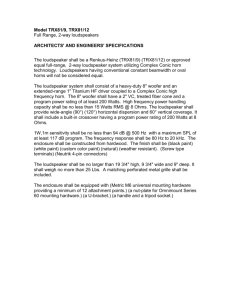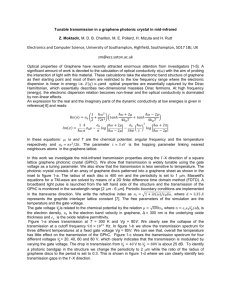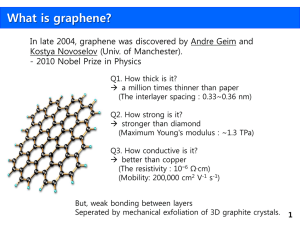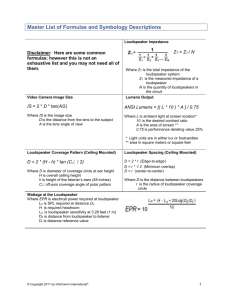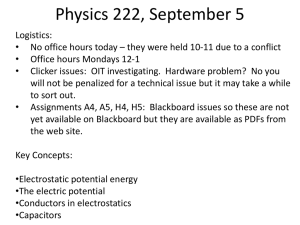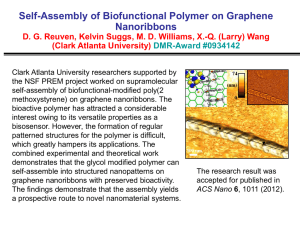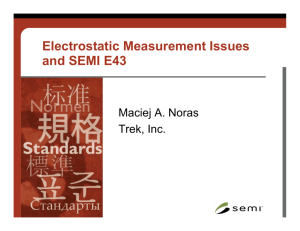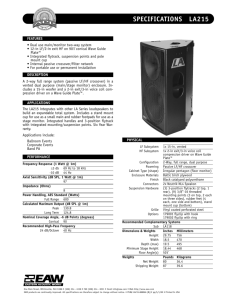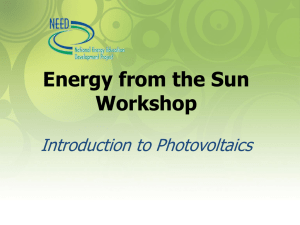Graphene Electrostatic Loudspeaker (MS Powerpoint Presentation)
advertisement
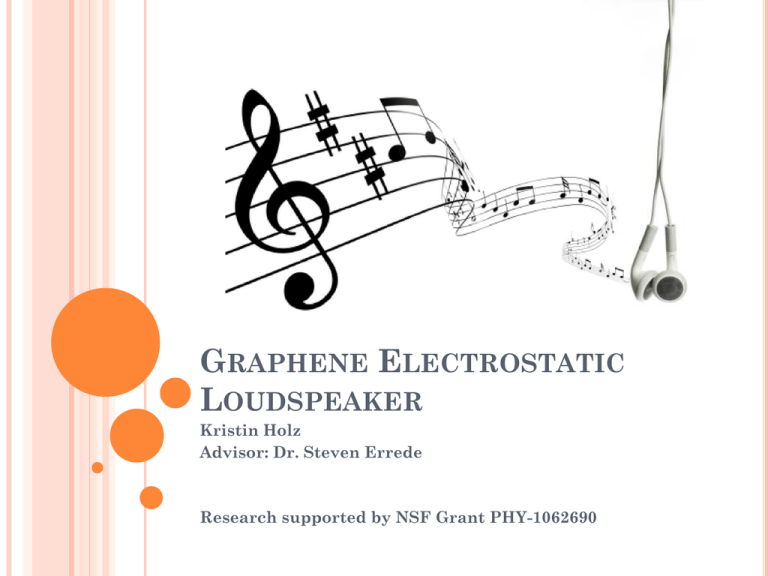
GRAPHENE ELECTROSTATIC LOUDSPEAKER Kristin Holz Advisor: Dr. Steven Errede Research supported by NSF Grant PHY-1062690 SUMMARY Background Importance Prototype Frequency Response and Efficiency Simulation WHAT IS AN ELECTROSTATIC LOUDSPEAKER? AC voltage perforated capacitor Insulating frame DC voltage biased membrane 𝐹𝐸𝑀 𝜀0 𝐴𝑉𝐷𝐶 𝑉𝑖𝑛 𝑖𝜔𝑡 = −2 𝑒 𝑧 2 𝑑 GRAPHENE One atom thick layer of graphite Hexagonal pattern of carbon atoms Low resistivity Low mass Low spring constant High strength WHY A GRAPHENE ELECTROSTATIC LOUDSPEAKER? Thinness and low mass density allow for smaller sized speaker Low mass, low spring constant, and high strength produces a great overall frequency response High strength ensures better fidelity VOLTAGE DRIVER DESIGN Op Amp Input Inverting Op Amp Output FREQUENCY AND PHASE RESPONSE OF DRIVER Range of hearing VOLTAGE DRIVER Top View Capacitors Copper Foil Grounding Plane Trimpot Resistor Bottom View Op Amp Electronic Component Resistors ELECTROSTATIC LOUDSPEAKER PROTOTYPES Aluminized Mylar Membrane Steel mesh capacitor plates Nylon washer spacers (1.676 mm) Graphited Mylar Membrane Steel mesh capacitor plates Hole punch reinforcement sticker spacers (0.127 mm) ALUMINIZED MYLAR LOUDSPEAKER: FREQUENCY RESPONSE AND EFFICIENCY 𝑑 = 1.676 𝑚𝑚 Comfortable headphone volume region GRAPHITED MYLAR LOUDSPEAKER: FREQUENCY RESPONSE AND EFFICIENCY 𝑑 = 0.127 𝑚𝑚 Comfortable headphone volume region SIMULATION Geometry Sound Pressure Level at 1kHz Displacement at 766.5 Hz Acoustic Pressure Field at 1kHz CONCLUSIONS Graphene electrostatic loudspeakers should theoretically be better than current headphone speakers The voltage driver circuit we made works well The simulation produces results we expected The prototypes produce results we expected Now we just need the graphene sheet…
